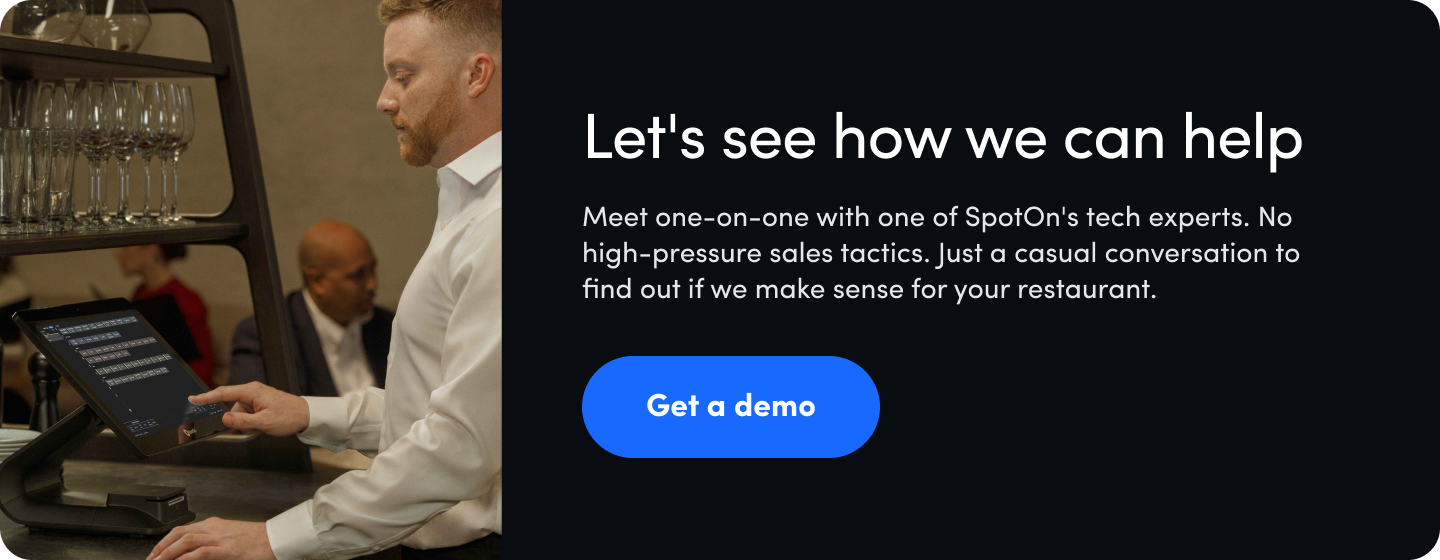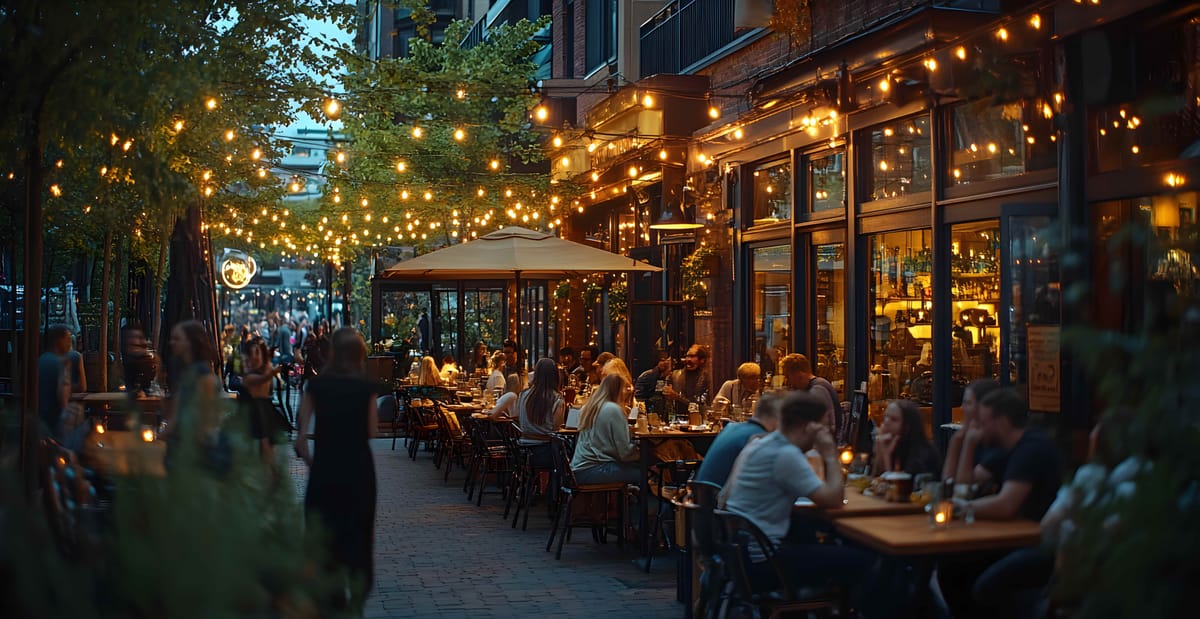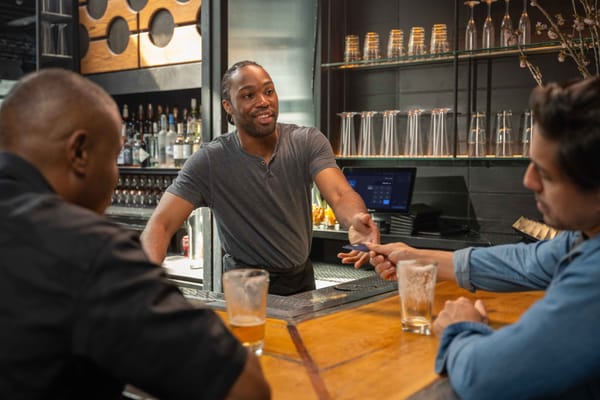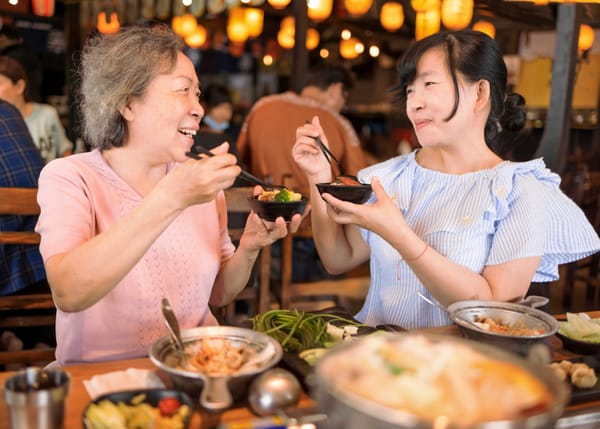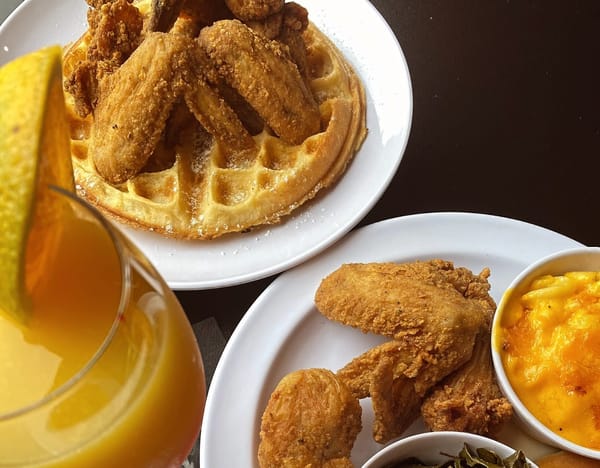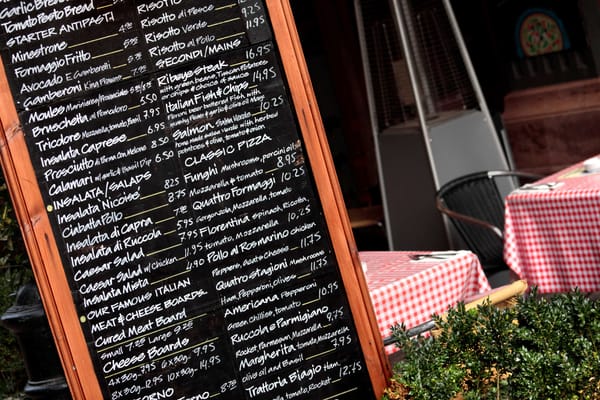Joe Nicholson was a manager and tech consultant at one of the busiest restaurants in Sacramento, CA—Tower Cafe. Now, as a copywriter at SpotOn, he helps restaurant owners and managers learn how to run a more profitable operation.
Patios can be quite lucrative. However, getting more guests in seats through outdoor dining can also come at a cost, both in time and money. Having managed a restaurant with an extremely popular patio and brunch menu, I know this firsthand. Whatever your restaurant type, we'll give you some practical and effective ways to get more profit from your outdoor space this year.
1. Make your outdoor patio more inviting
Guests are more likely to sit on the patio when it's a continuation of the inside of your restaurant. This assures them they won't be forgotten by servers, and they still get to experience your unique ambiance. Let's look at some ways to bring your inside to the outside.
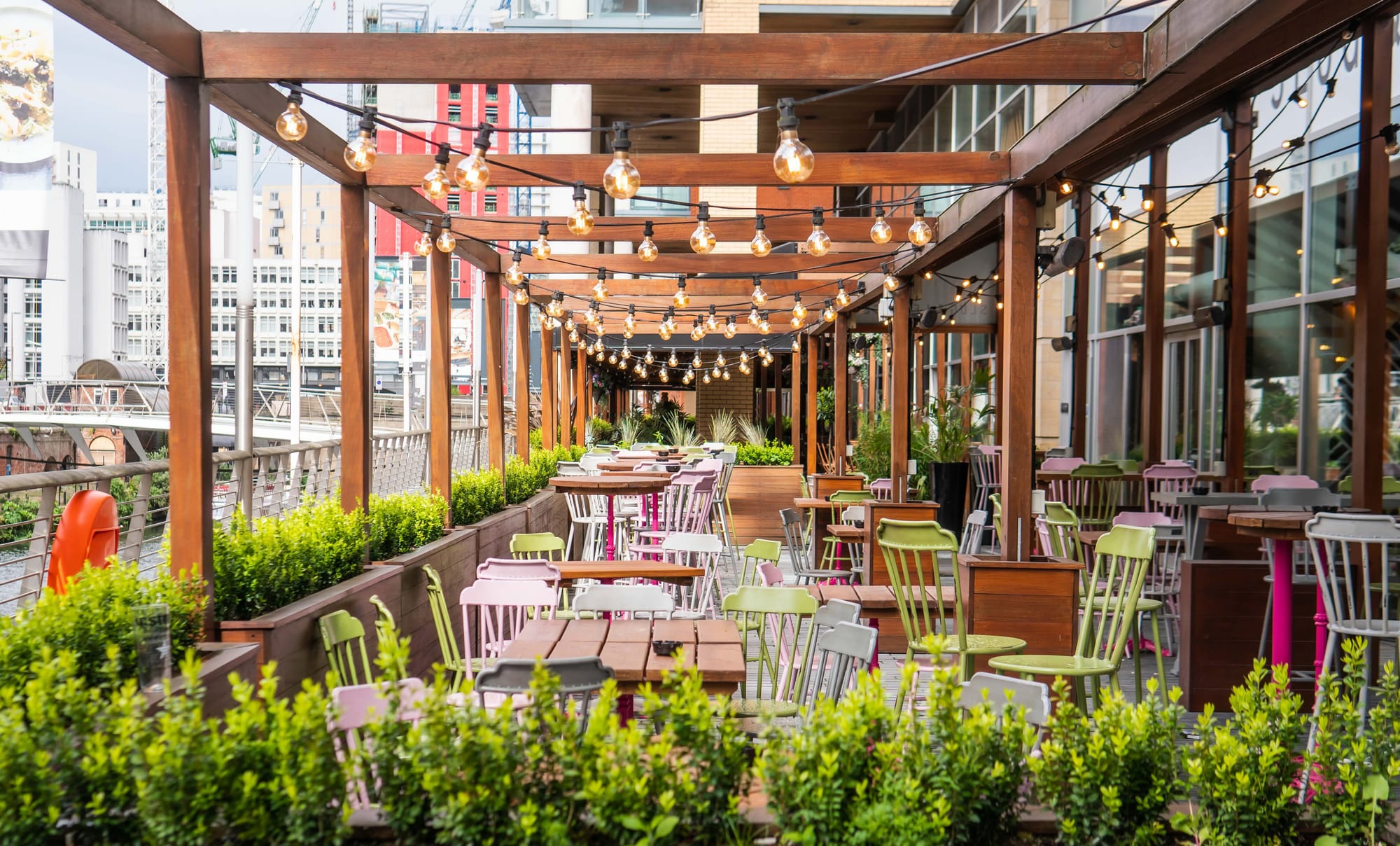
- Furniture. Replace picnic tables with stylish tables and chairs that match your inside. Add high tops to vary up seating. Opt for heavier items for more stability, and make sure tables have leveling feet to prevent them from wobbling. Put weatherproof seat cushions on chairs to make them more comfortable for guests.
- Plants. Decorate walls, fences, and overhead structures with vibrant plants. Choose plants that thrive year-round in your area's climate. Add colorful hanging flower pots on special occasions like Easter, Mother's Day, and the Fourth of July. Put planters or large pots with seasonal flowers on your patio.
- Lighting. Put up outdoor string lights in trees or structures so they cross over tables. Add rope lighting under ledges and steps to accentuate stone work and pathways. Place rechargeable twinkling lights in planters, next to trees, or in flower beds.
- Live music. If you have the space on your patio, consider adding a stage where a 2-to-4-person band can play. Guests love listening to local artists, and unlike a soundtrack, live music captures the attention of people walking by.
2. Empower servers to sell more with handhelds
The outside area is further from the kitchen and the POS, which means a server on the patio has to do a lot more running around to keep tables happy. This not only limits the number of patio tables a server can take, but it also makes it more difficult to give good service. A handheld POS can help. It's a portable POS device that fits in an apron and lets servers take orders and payments at the table. No more back and forth from tables to the POS. Let's explore how this changes their workflow.
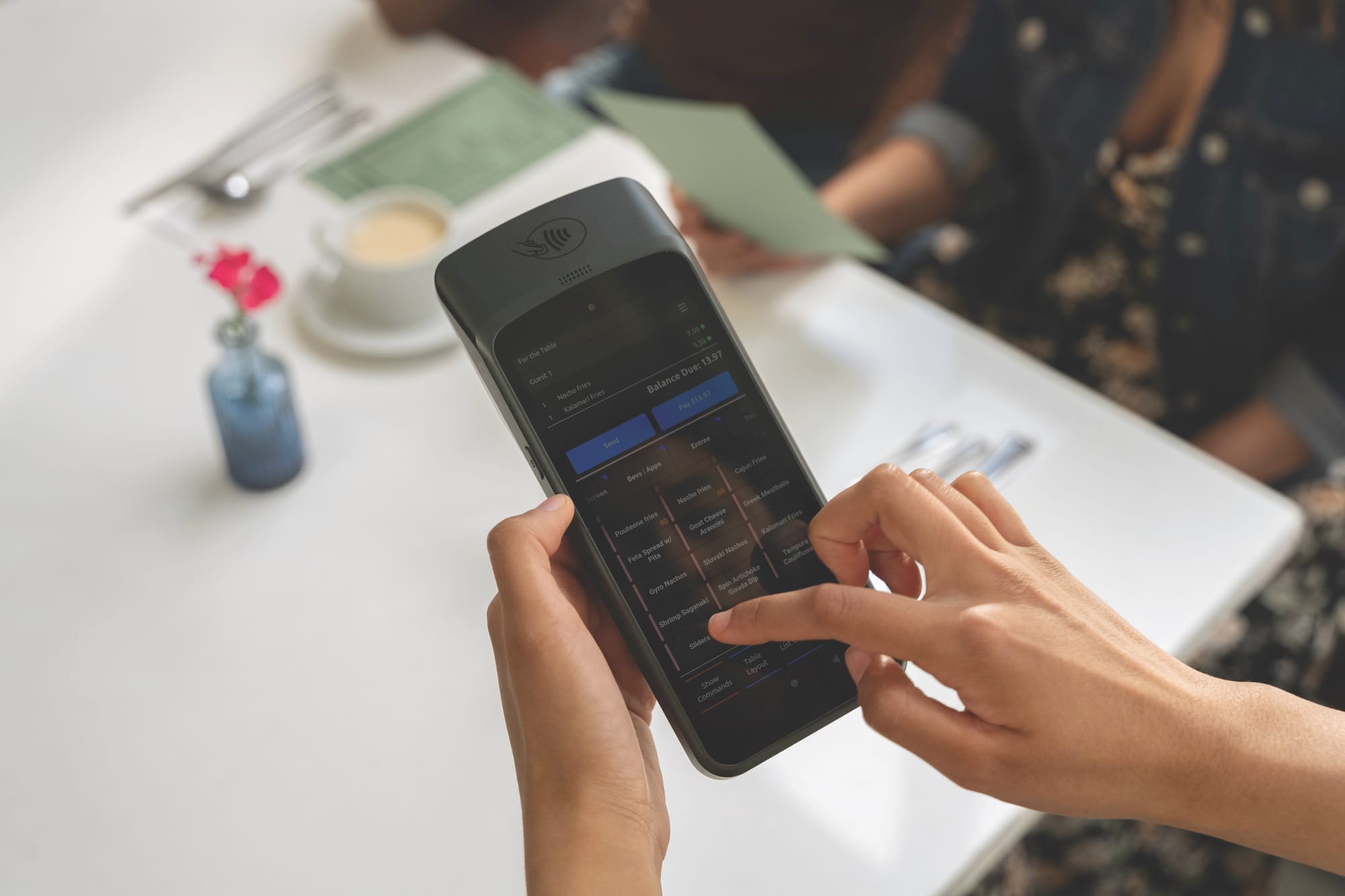
Tableside ordering and payments
If a server has multiple tables ready to order, they have to go to each one, write their order down, and then go to the POS to input those orders. Sometimes they even have to wait for the POS, because other servers are putting in their orders. This means the first order for the group is often put into the POS several minutes after the order was actually taken, with the subsequent orders being slightly shorter. It also means that many orders are hitting the kitchen at the same time. Multiply this over a few servers, and your kitchen is quickly in the weeds.
With handhelds, servers can put orders into the POS right when diners say them. There's no scribbling in a notepad and re-inputting the order, so entry mistakes are less likely to happen. And because the order is fired to the kitchen on the spot, food and drinks come out faster.
Restaurants using handheld devices experience a 15% improvement in labor efficiency.*
*State of the Industry Report, National Restaurant Association, 2024
A server can even fire drinks before taking the food order, and oftentimes, an expo will bring them before the server has left the table. And with orders coming out sooner, guests tend to order more, leading to larger check averages. On top of that, servers can take more tables. At Tower Cafe, our sections (including our patio) had 9 tables each (2-tops and 4-tops), and our servers could handle that volume and still give great service. Superstars could take even more.
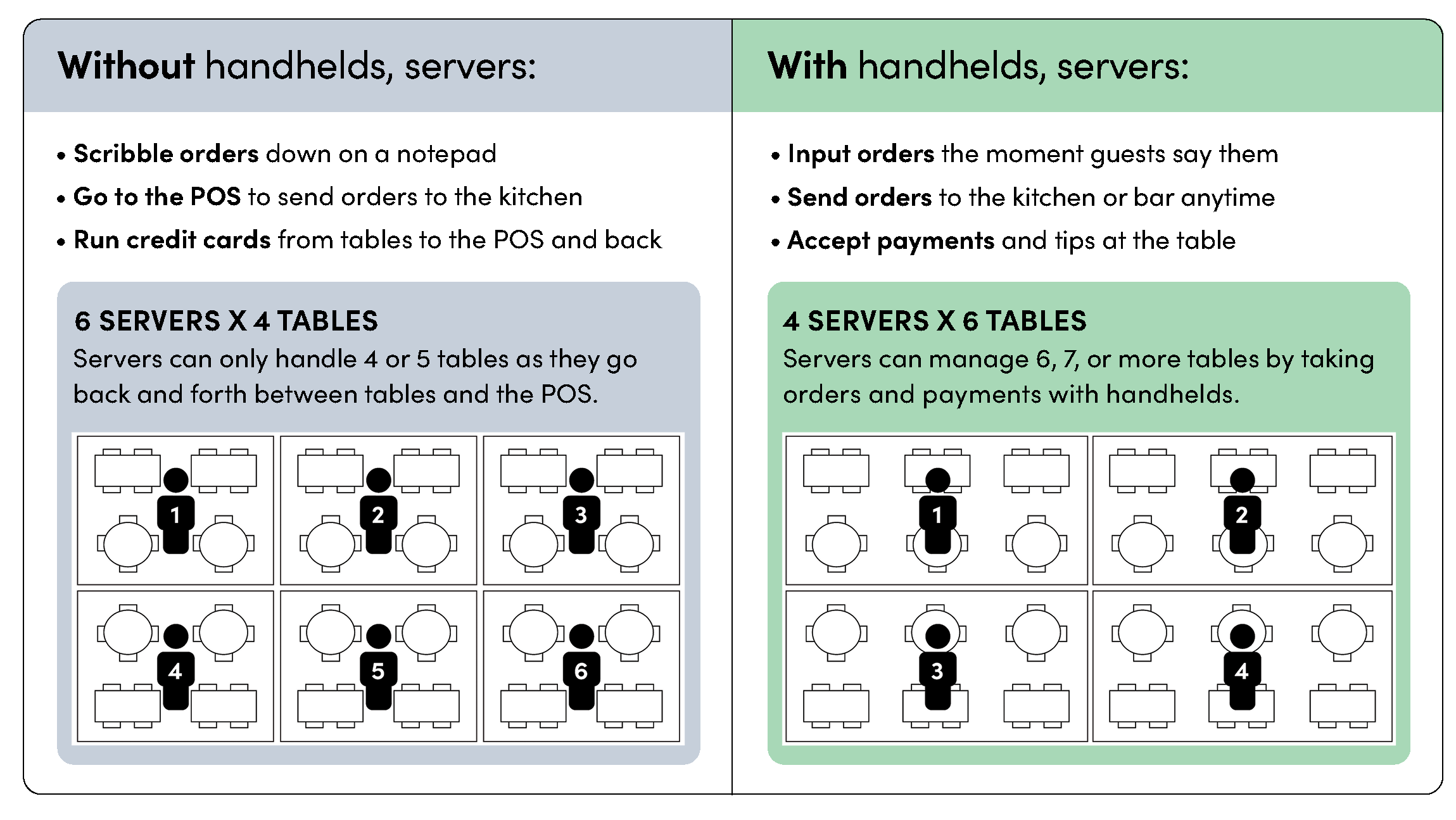
Restaurant owners using handheld devices report a 10-15% increase in sales*
*State of the Industry Report, National Restaurant Association, 2024
Payments happen faster, too. There's no running cards back to the POS and possibly losing them on the way. A guest can even add a tip and sign for the check right on the handheld, saving servers from having to print out receipts.
Menu item information
Most servers should know the flavors of your menu items and what pairs well together. But what if someone has an allergy to cranberries or some other ingredient that's not specified in the menu description? Servers would have to run and ask a manager or, even more time-consuming, run to the kitchen and ask the chef to be extra sure. That pulls them away from their tables for several minutes, and could cause them to get behind if they've got a patio section.
Handhelds put the ingredients of every menu right at a server's fingertips, with the restaurant POS acting as the single source of truth of ingredient information for the front-of-house staff. This allows the server to give accurate information on both the ingredients of an item and how many of each item are left—item count.
3. Seat more people with accurate wait times
Sometimes the wait for the patio is longer than the dining room, and hosts have to guess how long that will be. Usually, they'll quote longer to avoid overpromising and irritating parties before they even sit down. But quoting wait times that are too long could cause waiting parties to dine elsewhere. That's lost revenue.
A digital waitlist with table inventory accurately calculates how long the wait will be for your patio using data from your restaurant. Like the size of the parties seated, the average length of time those parties stay, and how many waiting parties want to sit on the patio.
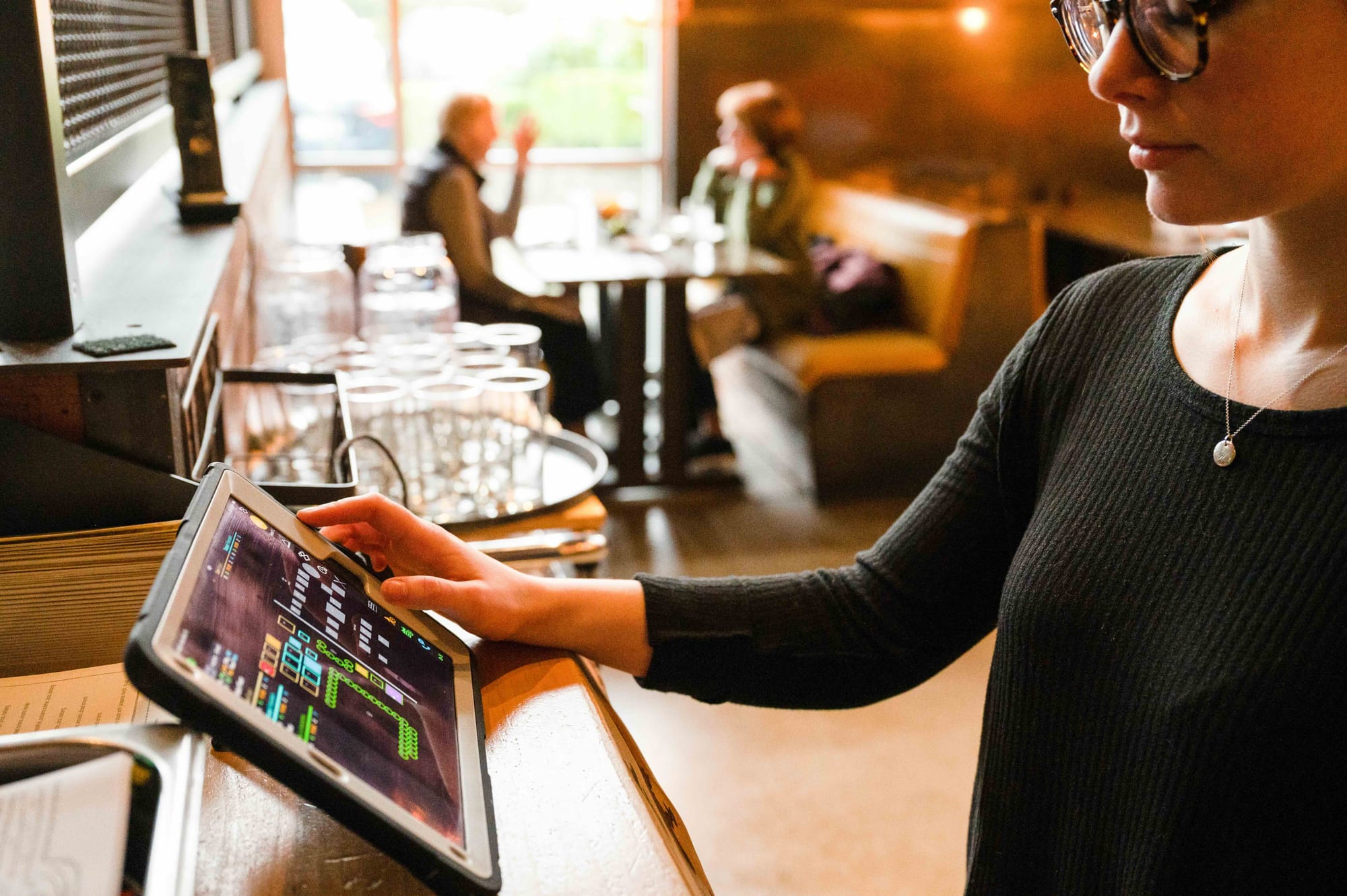
Let's say a couple walks up and asks the wait time for a 2-top on the patio. The digital waitlist shows the host (or hostess) that outside seating will be 45 minutes, but inside will only be 10. The guests are going to a movie in an hour and a half, so they decide to go inside.
If the host had promised (guessed) a shorter time for the patio, the guests might have waited for half an hour, then left in frustration. Or if the host had quoted 45 minutes for inside or outside, the guests would have just walked away, assuming they wouldn't make their movie if they waited. But an accurate quote for both areas kept the guests and the sale. This adds up as the waitlist grows. Accurate wait times mean happier guests and ultimately more revenue.
4. Extend your patio season into more months
Late spring and early summer are the perfect seasons for patio dining. That's because a good temperature for eating outside at a restaurant is typically between 60°F and 80°F. Anything below 55°F might be too cold without heaters, and anything above 85°F can feel too hot unless there's shade and airflow. Let's look at the ways you can keep diners comfortable while dining outside throughout the year.
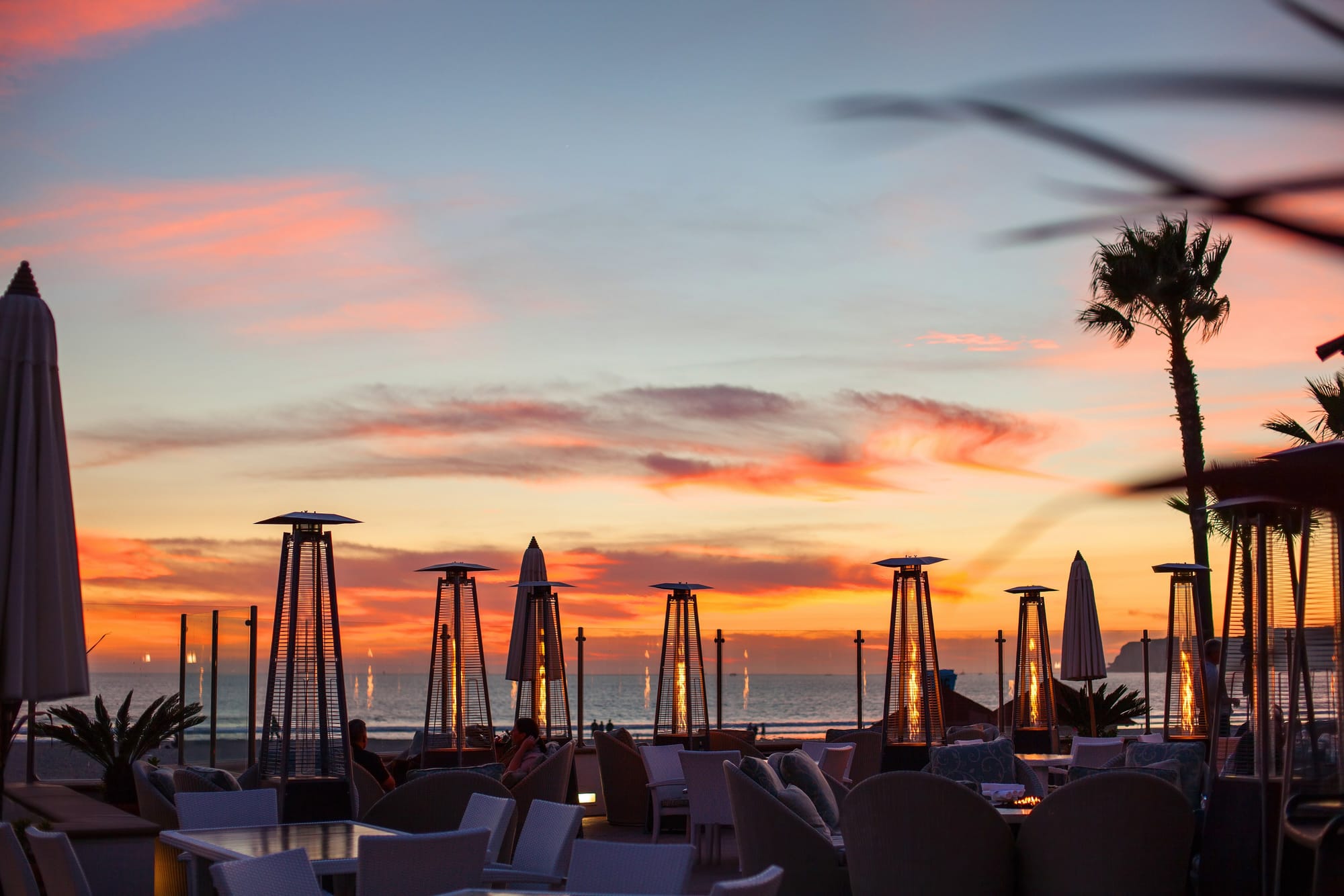
- Fans. When the temperature gets too hot during the warmer months, fans can bring in fresh air while keeping the bugs away. If you have an overhead structure on your patio, consider installing weatherproof ceiling fans for the most airflow and the best aesthetic. Another option could be a mounted wall fan with a cord, but this has the potential to look tacky.
- Umbrellas. As the summer heats up, shade is needed to keep people cool. Umbrellas that go through the center of tables (with a base) or attach to fences can be an affordable way to cover diners. And if they are durable and big enough, they can even protect from moderate rain.
- Awnings. For outside seating next to your restaurant, an attached retractable awning can protect you from the sun and rain. Also, make sure it can withstand strong winds. Otherwise, you'll have to retract it when it's too gusty. Awnings work well for sidewalk cafes and beer gardens.
- Heaters. When the temperature drops unexpectedly in the fall, patio heaters can help keep your outdoor space operational. Mounted commercial heaters can be expensive, but they're the easiest to operate and don't get in the way of staff and guests. Freestanding gas heaters, on the other hand, are more affordable, but take up space and sometimes are trickier to light. Either way, make sure to get something that's safe to use for several hours at a time.
- Commercial pergolas. If you have the space, capital, and building permission, a pergola with a retractable roof and windows will allow you to use your patio year-round, even when it snows. Pergolas are a great solution for rooftops and side patios without trees.
5. Let guests order on their own with QR codes
Handhelds help servers take more tables and give better service. But even when there's great service, diners sometimes want to order your great food when their server is busy helping other tables or running food and drinks. This situation tends to happen more often on the patio since it's further from the bar and kitchen.
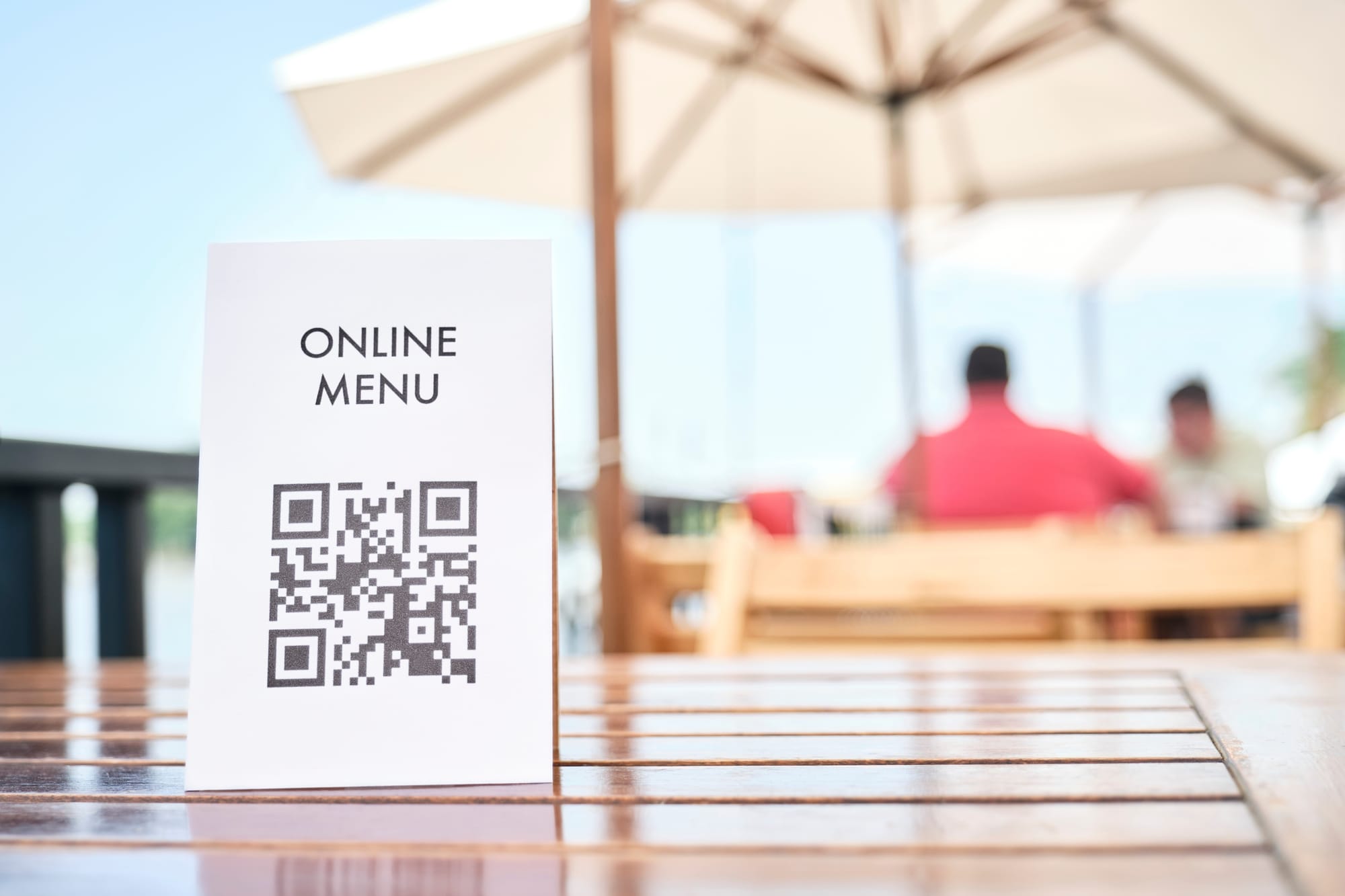
Let's say a server brings the main course to one of their patio tables. At that time, he checks if the guests need refills, another round of drinks, or extra sides. Everyone seems to be fine. Two minutes later, the server checks with the table again to see how they like their entrees and if they need anything else. Everyone says the food tastes great, and the server refills their water.
After the server leaves, one of the guests sees the new pomegranate strawberry margarita go by, and she wants it. It doesn't look like the server will be back for several minutes. She remembers the server telling them they could order anything through the QR code on the table. She pulls out her phone, scans the code, and quickly adds the margarita to their check. Five minutes later, the server comes out with the margarita and says, "Nice choice." That's an impulse sale captured in the moment, bringing more revenue into your restaurant.
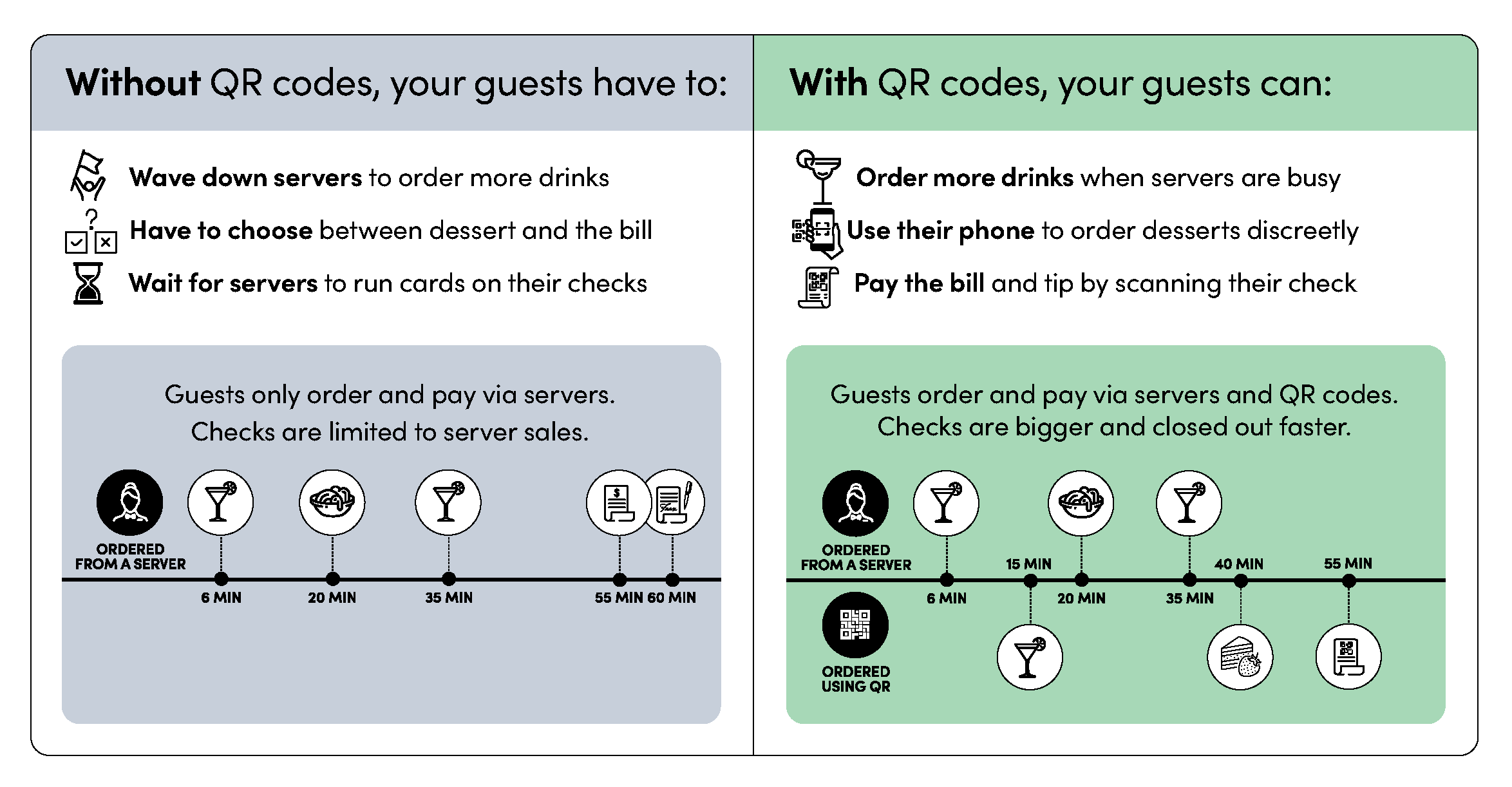
QR codes contribute to a 20% improvement in table turnover rates.*
*State of the Industry Report, National Restaurant Association, 2024
QR codes not only let guests order whenever they get the urge, but they can also pay on their own when they're ready to settle up. No waiting for the server to run their card. And no missing the first minutes of the movie or concert. That leads to faster table turns.
**Restaurant Technology Landscape Report, National Restaurant Association, 2024
The right patio changes can mean big profit
Your patio has big potential. Take some time to observe the workflow of your outdoor space and look for ways it could bring in more profit. If you notice that tech like handhelds, a digital waitlist, and QR codes could make your staff more productive, consider implementing a restaurant POS with these as integrated tools. When technology works seamlessly together, it makes your job exponentially easier. Because more profit shouldn't be about working harder, but working more efficiently.
